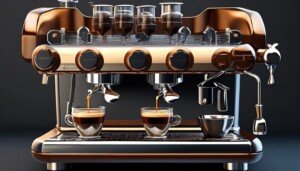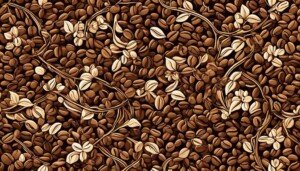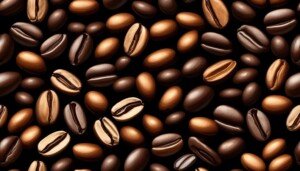As you sip on your morning cup of coffee, you may find yourself wondering if there's a healthier alternative out there. Well, let's explore the world of espresso and its potential benefits.
While espresso may seem like a symbol of indulgence and sophistication, it also holds the promise of potential health advantages. But is it truly healthier than regular coffee? The answer may surprise you.
So, grab your favorite mug and join us as we delve into the intriguing debate between espresso and regular coffee.
Key Takeaways
- Espresso has a higher caffeine content per ounce compared to regular coffee.
- Both espresso and regular coffee offer health benefits such as improved alertness and cognitive performance.
- Espresso contains fewer calories and no sugar compared to regular coffee, but both beverages contain micronutrients.
- Moderate coffee consumption, regardless of the brewing method, may have potential health benefits, but excessive intake can be detrimental to health.
Espresso Vs. Coffee: Similarities and Differences
When comparing espresso and regular coffee, there are several similarities and differences to consider.
One major difference lies in their concentration and serving size. Espresso is a concentrated shot, typically measuring 1 ounce, while regular coffee is brewed in larger amounts. This variation in serving size affects the overall caffeine content. A 1-ounce serving of espresso contains approximately 63 milligrams of caffeine, which is higher than regular coffee. However, due to the smaller serving size of espresso, the overall caffeine intake may be lower when compared to a typical cup of coffee.
Despite these differences, both espresso and regular coffee offer health benefits. They're known to improve alertness, enhance mood, and increase cognitive performance. Furthermore, both beverages contain antioxidants that can help protect against certain diseases. However, it's important to consume these beverages in moderation, as excessive caffeine intake may lead to negative health effects such as increased heart rate and sleep disturbances.
In terms of taste and brewing methods, espresso and regular coffee also differ. Espresso has a bold and intense flavor, characterized by a heavy body, strong aroma, and intentionally bitter taste. On the other hand, regular coffee offers a wider range of flavor profiles based on different brewing methods, such as drip brewing, French press, or pour-over. This allows for a smoother and more diverse taste experience.
Caffeine Content: Espresso Vs. Coffee
Espresso and regular coffee differ significantly in terms of their caffeine content. When it comes to caffeine, it's important to consider the serving size and the brewing methods used for each type of coffee. Here are some key points to help you understand the differences:
- Espresso is typically served in small 1-ounce shots, while regular coffee is usually consumed in 8-ounce cups.
- A 1-ounce serving of espresso contains about 63 milligrams of caffeine, making it highly concentrated.
- On the other hand, an 8-ounce cup of brewed coffee contains around 95 milligrams of caffeine, which is slightly higher than a single shot of espresso.
- Despite the larger serving size, regular coffee still has a lower caffeine concentration compared to espresso.
- It's worth noting that espresso provides about a sixth of your daily caffeine quota in just one shot.
Nutrition Facts: Espresso Vs. Coffee

Comparing the nutrition facts of espresso and regular coffee reveals important differences in their calorie and sugar content, as well as the presence of essential micronutrients.
When it comes to caffeine content, espresso has a higher concentration per ounce compared to regular brewed coffee. A 1-ounce serving of espresso contains about 63 milligrams of caffeine, while an 8-ounce cup of brewed coffee contains around 95 milligrams of caffeine.
In terms of calories and sugar, espresso is the winner. A 1-ounce serving of espresso contains only 10.7 calories and 0 grams of sugar, while a cup of regular brewed coffee may have more calories and potentially added sugar, depending on how it's prepared.
Additionally, espresso contains various micronutrients such as calcium, magnesium, phosphorus, potassium, sodium, niacin, folate, and choline. These micronutrients play important roles in maintaining overall health.
However, it's important to consume caffeine in moderation and consider personal tolerance levels. It's recommended to consult with a healthcare professional for personalized advice on caffeine consumption and its impact on overall health.
Which Has More Caffeine?
To determine which beverage contains a higher concentration of caffeine, it's essential to compare the caffeine content of espresso and regular coffee. Here are the facts:
- Espresso has a higher caffeine content per ounce compared to regular coffee. A standard 1-ounce serving of espresso contains about 63 milligrams of caffeine.
- The caffeine content in espresso is higher than that of regular brewed coffee. This is due to the different brewing methods. While espresso is made by forcing hot water through finely ground coffee under pressure in an espresso machine, regular coffee is typically brewed by pouring hot water over coarsely ground beans in a drip coffee maker.
- The FDA recommends capping caffeine consumption at 400 milligrams per day, equivalent to about six shots of espresso. It's important to be mindful of your caffeine intake and consider the overall amount consumed from various sources throughout the day.
Which Is Healthier?

When considering the health benefits of different coffee beverages, it's important to evaluate their overall nutritional profiles and potential effects on the body. While espresso and regular coffee both contain caffeine, their brewing methods result in varying concentrations of this stimulant.
Espresso typically has a higher concentration of caffeine compared to regular coffee. A standard shot of espresso contains about 63 milligrams of caffeine, while an 8-ounce cup of regular coffee contains around 95 milligrams.
Coffee consumption has been associated with several potential health benefits. Studies have shown that moderate coffee intake may reduce the risk of developing chronic conditions such as type 2 diabetes, Parkinson's disease, and liver disease. The antioxidants and beneficial compounds found in coffee have been suggested to play a role in these health benefits.
However, it's important to note that excessive consumption of coffee, regardless of the brewing method, can have negative effects on health, such as increased heart rate, anxiety, and disrupted sleep patterns.
To determine which type of coffee is healthier, it's crucial to consider individual factors and consult with a registered dietitian or healthcare professional. They can provide personalized advice based on your specific health needs and goals. Additionally, it's important to maintain a balanced and varied diet, as relying solely on coffee for potential health benefits may not be sufficient.
How to Enjoy Both in a Healthy Way
To ensure a healthy enjoyment of both espresso and regular coffee, it's important to make mindful choices regarding consumption and preparation methods. Here are some tips to help you enjoy both in a healthy way:
- Moderation is key: It's recommended to stay within the daily caffeine intake limit of 400 milligrams. This means being mindful of the amount of espresso or regular coffee you consume throughout the day.
- Skip the sweeteners: Avoid adding sugar or artificial sweeteners to your espresso or coffee. This will help keep your beverage healthier and prevent unnecessary calorie intake.
- Time your caffeine consumption: Consider stopping caffeine consumption around noon to improve sleep quality and avoid disrupting your sleep cycle. This can help prevent the negative effects of caffeine on your sleep patterns.
- Know your tolerance: Everyone's caffeine tolerance levels are different. Pay attention to how your body reacts to espresso or regular coffee and adjust your intake accordingly. This will ensure that you aren't consuming too much caffeine.
- Keep it simple: Opt for espresso or coffee without unhealthy mix-ins such as whipped cream or flavored syrups. These additions can add unnecessary calories and reduce the health benefits of your beverage.
Frequently Asked Questions
What Is the Healthiest Way to Drink Coffee?
To drink coffee in the healthiest way, choose a light to medium-roasted coffee. Avoid adding sugar or artificial sweeteners. Remember to drink in moderation to avoid potential drawbacks like insomnia and digestive issues.
Is a Shot of Espresso a Day Healthy?
A shot of espresso a day can be a healthy choice due to its higher caffeine content and potential health benefits like improved cognitive function. However, moderation and considering individual preferences are essential.
Why Do I Like Espresso Better Than Coffee?
You may prefer espresso over regular coffee for several reasons. Its smooth texture and rich flavor can be more appealing to your taste buds. Additionally, the higher concentration of caffeine in espresso may provide a stronger energy boost.
Why Is Espresso the Best Coffee?
Espresso is the best coffee because its concentrated shot, made with hot water and high pressure, delivers a heavy body and strong aroma. It has more caffeine per ounce, providing an energy boost and potentially enhancing exercise performance.
Conclusion
In conclusion, while espresso and regular coffee have similar health benefits, such as reduced risk of stroke and protection against certain diseases, their caffeine content and nutrition facts differ.
Espresso has higher caffeine concentration, while regular coffee may have more antioxidants and nutrients.
Both can be enjoyed in a healthy way, but excessive consumption of espresso should be avoided due to potential negative health effects.
As with any dietary choice, individual responses may vary.




